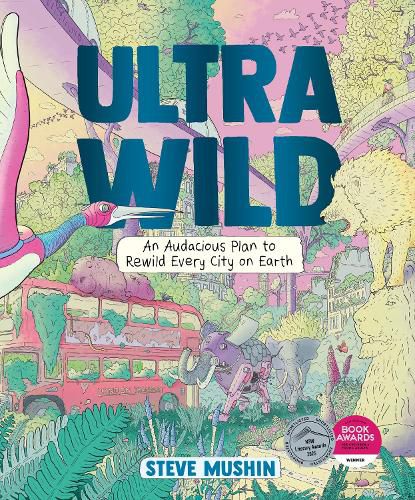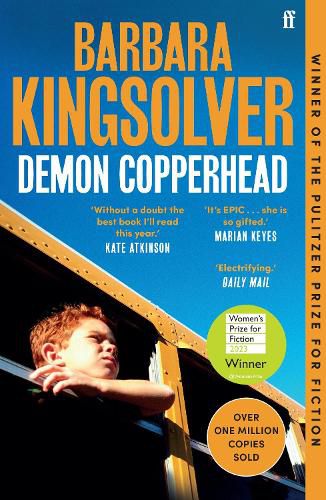Each week our amazing staff bring you a sample of the books or music they're immersed in.
Bernard Caleo is reading Ultrawild by Steve Mushin
Steve Mushin’s Ultrawild is a book full of visionary, revolutionary plans and schematics for rewilding the world, one city at a time (or actually, if Steve has his way, all of the cities in the world simultaneously). In meticulous, large-format, comic-book-style pages, he steps us through his designs for flinging compost balls down city streets (encouraging jungles to grow), 3-D printing branches onto lamp posts (encouraging birds back into urban areas), converting sewers into underground waterways (we’ll be using all that poo to make the compost balls) and riding winged bikes on the thermals created by built-up areas.
Alongside his wild and wonderful inventions, Mushin's book engages seriously with the necessity of thinking and acting outside the box if we are to tackle the great environmental and social challenges posed by climate change. Ultrawild binds together optimism, imagination, science, engineering and art, presenting its ideas with verve and humour and pluck, in amazingly detailed drawings (think Roland Harvey and Richard Scarry). A great book to disappear into, and then surface from, in order to have conversations about how we, as a species, can survive and thrive. How we can help our world.
Emma Davison is reading Demon Copperhead by Barbara Kingsolver
I have been left with a SEVERE book hangover this week after finishing Demon Copperhead by Barbara Kingsolver, it’s definitely up there with one my favourite reads of the year. It follows Damon (nicknamed Demon) throughout his rocky childhood growing up in the Appalachians of the US. This is no easy read, the odds are stacked against poor Demon from the minute he’s born but because of this, he has incredible resilience and an untimely maturity.
Demon Copperhead is inspired by Charles Dickens’ David Copperfield, which I haven’t read, but I’d be intrigued to hear from someone who has. It reminded me a lot of Douglas Stuart’s Shuggie Bain, an all-time favourite of mine. I remember finishing Shuggie Bain and really missing the character of Shuggie. I found myself worrying for him and hoping he was okay even after finishing the novel. I was really struck by this feeling of protectiveness over a fictional boy and how I feel about Demon is exactly the same.
After bearing witness to the hardships of a vulnerable character over a long period of time you begin to form a real attachment to them. Whenever I put Demon Copperhead down I felt strangely guilty, as if I was abandoning Demon in some way. It takes incredible authorship to create characters this vivid and stories this affecting, Kingsolver deserves all the praise she gets!
Celeste Perry is reading The Golden Mole: and Other Living Treasure by Katherine Rundell & Talya Baldwin (illus.)
Katherine Rundell’s The Golden Mole presents captivating true stories of whimsical animals, ranging from the evolution of a whole species to the most specific encounters with individual creatures.
The Golden Mole reads with the ease of listening to a lullaby. I’ve never read a nonfiction book quite this magical – it leaves you with the same feeling as any fairytale, brimming with curiosity and awe. It is such a quick and easy read, lengthened only by my need to further investigate the fascinating figures Rundell mentions. Every paragraph presents another rabbit hole to further immerse yourself in.
Rundell focuses on a species each chapter, paired with a charming illustration, sharing true tales of how humans have viewed animals through time and how it has shifted. Namely, the story of the Golden mole. A marsupial who sparkles a shimmery golden rainbow in the sunlight, but is blind and lives most of its life in darkness, never able to appreciate its own rarity. To find out more about this charming creature I recommend you pick up a copy for yourself.
This book is perfect for all animal lovers, or for anyone who seeks seemingly fanciful true stories, accessible anthropology, or remarkable obscurities throughout history.




